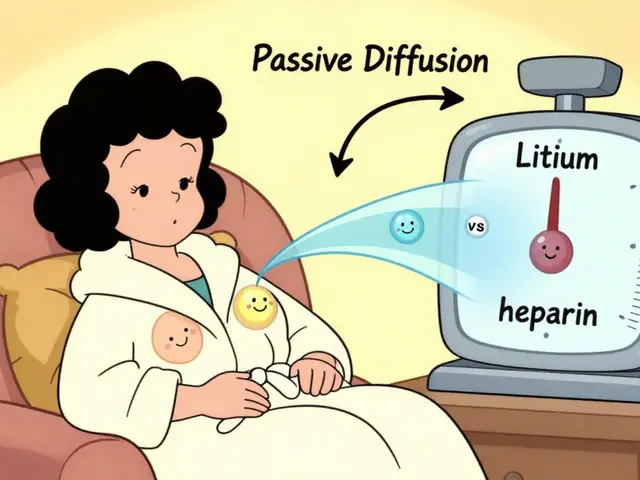Antabuse (disulfiram): how it helps people stop drinking
Antabuse, the brand name for disulfiram, is a drug that creates a strong negative reaction if you drink alcohol. That reaction—flushing, nausea, headache, and fast heartbeat—can last for several hours. Some people find that threat of a bad reaction helps them avoid alcohol and stick with treatment. If you're considering Antabuse, this page gives straightforward, practical facts so you can talk to your doctor with confidence.
How Antabuse works and who it's for
Disulfiram blocks an enzyme involved in breaking down alcohol. When alcohol builds up in the body it turns into a chemical that causes unpleasant symptoms. Antabuse doesn’t reduce cravings or make alcohol taste bad—its effect is purely aversive. Doctors typically prescribe it for people who are already sober and motivated to stay alcohol-free, especially when ongoing supervision is possible. It’s not a cure, but a tool to support recovery alongside counseling or support groups.
Before starting Antabuse, you need to be completely free of alcohol for at least 12 hours (often longer). Your clinician will check liver function first because disulfiram can affect the liver. People with severe heart disease, psychosis, or recent alcohol ingestion should not take it without close medical advice.
Dosage, side effects, and safety tips
Typical doses range from 250 mg to 500 mg once daily, but your doctor will pick the right dose for you. Side effects can include tiredness, headache, metallic taste, acne, and mild liver enzyme changes. Serious reactions are rare but possible—report any jaundice, severe stomach pain, or unusual tiredness right away.
The interaction with alcohol is the main safety issue. Even small amounts of alcohol in sauces, cough syrups, mouthwashes, or aftershaves can trigger a reaction. Read labels and ask your pharmacist which products contain alcohol. Avoid drinking for at least 14 days after stopping Antabuse, because the drug stays active in your body.
Drug interactions matter. Tell your doctor about all medicines and supplements you use. Some common interactions include certain antifungals, heart medications, and metronidazole. Your doctor will review risks and monitor liver tests during treatment.
Practical tips: keep a clear plan with your care team, store Antabuse safely, and wear medical ID if you’re at risk of accidental drinking. Pair medication with counseling or peer support for better results. If Antabuse isn’t a fit, other options—naltrexone or acamprosate—work differently and may help without causing an aversive reaction.
Want to read more? Check related posts on our site for alternatives, safety advice, and step-by-step tips to support recovery while using medication.





